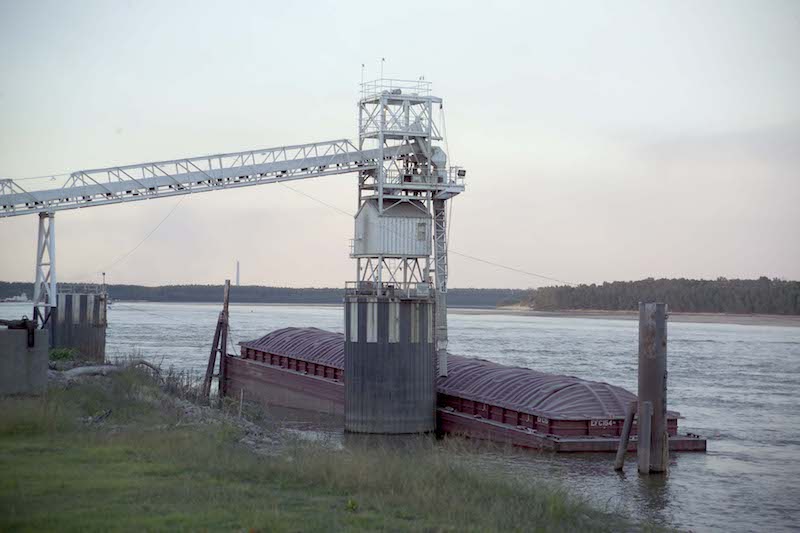Barge operators who haul soybeans or steel products are finding themselves at opposite ends of an escalating trade war between the Trump administration and key U.S. trading partners.
The winners are barge lines that carry steel products. They are benefiting from a 25% tariff that the president imposed last month on imported steel and a 10% tariff on aluminum. Intended to give a boost to the sagging U.S. steel industry, the tariffs have led to increased domestic production and more barge movements of these products on the waterways. Despite visits last week to Washington by two European leaders who asked Trump to halt these tariffs, the president has stood firm for now, arguing that it's time trading partners open their markets more evenly to U.S. goods.
Already there has been a “modest resurgence in the river-served primary aluminum industry” when Alcoa announced it would partially restart a plant in Indiana, and it appears that other companies will follow, according to River Transport News. Barged shipments of coal used in steel production are also reportedly up.
On the other side of the spectrum are barge companies that haul grains like soybeans from the Midwest through the river system to ports in Louisiana, where they are loaded on containers for export. If China goes ahead with its threatened retaliatory tariffs and limits imports of U.S. agricultural products including soybeans, barge operators will take a hit as demand for barge-driven soybean transport drops and a share of this market shifts to places like Brazil and Argentina.
“It’s true that China’s demand of foreign-produced exports is so substantial that the U.S. will continue to export to them a significant volume of soybeans. However, it does not require a wholesale abandonment of U.S. soybeans to impose trauma on U.S. soybean farmers. A marginal decrease can have a notable effect on prices,” Mike Steenhoek, director of the Soybean Transportation Coalition, told me recently.
Even a small drop in demand is bad news for river transport. “Barge companies should view the trade friction with China as unwelcome,” he said.
Meanwhile, U.S. ports would likely be hurt by these retaliatory tariffs on agriculture, as well as the steel and aluminum tariffs since these products are important cargoes at coastal ports and the Great Lakes.
Ironically, the Trump administration’s trade policy has put the president in a difficult political position, pleasing one part of his political base (steel and aluminum workers) while upsetting another (farmers). Angry over the steel tariffs, China has focused its retaliation on tariffs that would place economic pain on agriculture, which takes direct aim at voters in farm states who supported the president. Many Republican lawmakers from the Midwest are running scared that the trade policy could cost the GOP control of the U.S. House.
The barge industry might want to pay attention to what happens this week when a high level Trump administration delegation goes to China to discuss a possible deal to head off a trade war. The link between the results of these negotiations and the barge industry might not be immediately obvious. But it appears that without a resolution, the barge industry could suffer from retaliatory tariffs on a commodity market that has been its bread and butter for decades.




